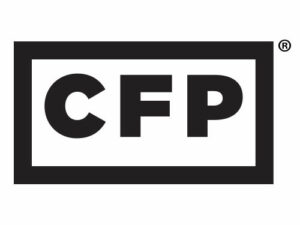By Bryan Trugman, CFPⓇ
Retirement means different things to different people. The data tell us that people are living longer and that 65 is the new 50. The next phase of life and retirement, we hope, can last another 20 to 30 years. We can only assume that people have planned well throughout their working lives and made prudent financial decisions along the way so that now they have the resources and peace of mind to transition into the phase of life that some call retirement.
It may initially seem great to be able to come and go and not be a slave to an alarm clock, but at some point, reality sets in, and the initial euphoria from freedom begins to fade. Most people who are ready to retire, or recently have retired, usually have not given a whole lot of thought into how they’re going to fill the extra time each day. Our working lives demand a lot of structure and provide constant social interaction. When we leave the workforce, many of our familiar routines and relationships suddenly disappear. Leisure activities like golf, tennis, and travel can only fill a portion of the enormous time gap that work used to occupy.
Passion Projects And Giving Back
With the free time we now must fill after retirement, we can start to work on some of those other passions that have been brewing for years but unfortunately got sidelined because there simply wasn’t enough time in the day. Weaving in time for the things that we are passionate about is always time well spent. For my dad, it is photography, and for one of my partners, it’s music. Also, think about causes or organizations that you have always wanted to support more. Maybe you can give back by volunteering on a board or being part of a project that would not have been possible during the working years. I believe that we all need to incorporate these aspects of retirement into our plan because the way we will spend our time can affect the way we utilize our financial resources.
Transitioning Vs. Traditional Retirement
For some, transitioning out of the workforce might initially be feasible. For most people, though, this may not be an option or even desirable. If you work a regular eight-to-five job, you will likely work full-time until the day you retire. If you own a business, you may have more flexibility; for instance, you could choose to work only two or three days a week for the last several years, gradually becoming less involved in the business until you decide it’s time to step out completely. The objective, regardless of the chosen path, is to live a long and fulfilling life throughout one’s retirement.
Living Situation
Another equally important factor most don’t thoroughly explore is where to live during retirement. For most of us, during the working years, our jobs and careers largely dictate where we live. After retirement, family and friends play a bigger role. You’ll also need to think about the tax and financial implications, and living near the resources you will need, such as medical facilities and shopping. You will likely need to hire help to assist with chores that you used to do yourself, such as cleaning and mowing the lawn. Where you choose to put down roots will have a big impact when it comes to the challenges you will need to manage during the different phases of retirement.
Retirement is complex and multifaceted. I believe that we all need to plan and think about the question of how we will spend our time, as specifically as possible. When we do not have meaningful activities to fill our days, we can become bored and listless. Stress is not an inherently bad thing; we need a certain amount of positive stress (“eustress”) in our lives; this is the feeling of thriving and being engaged in life. Think of it as the feeling of being enthralled in a rousing sporting event or movie. If you did not have to work today, what would you do instead?
I’m Here to Help
I believe that the more specifically we can answer the question of how we will spend our retirement even years or decades down the road, the better we can see what we need to prioritize today. If you’d like to explore how I can help you put the financial resources in place that will allow you to spend your retirement doing the things that are important to you, please feel free to reach out to me via email at btrugman@attitudefinancial.com or give me a call at (516) 762-7603.
About Bryan
Bryan Trugman is managing partner, co-founder, and CERTIFIED FINANCIAL PLANNER™ (CFP®) practitioner at Attitude Financial Advisors. With more than 12 years of experience, Bryan specializes in addressing the financial needs of new parents as they seek to realign their finances, assisting divorced individuals as they navigate an unforeseen fork in the road, and strategizing with those seeking to accrue a dependable retirement nest egg. Bryan is known for being a good listener and building strong relationships with his clients so he can help them develop a customized financial plan based on what’s important to them. He is passionate about helping his clients experience financial confidence so they can worry less and play more. Bryan has a bachelor’s degree in industrial and systems engineering with a minor in mathematics from State University of New York at Binghamton. He has served on the board of the Financial Planning Association and continues to be actively involved in the national organization. He is also a member of the Plainview-Old Bethpage Chamber of Commerce, for which he has served as a vice president and board member. When he’s not working, you can find Bryan on the ballroom dance floor or engaged in a fast-paced game of doubles on the tennis court. To learn more about Bryan, connect with him on LinkedIn.



